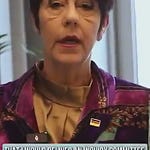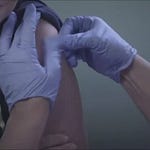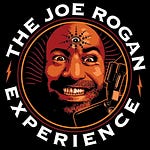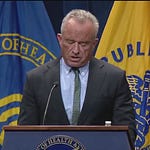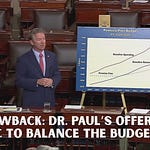Upgrade for more EXCLUSIVE interviews and articles from Rand Paul Review!
Can you imagine a conservative crowd in South Carolina cheering on the legalization of heroin? Ron Paul managed to evoke this response after referencing the failure of the war on drugs and presenting the logic of legalizing all drugs, even heroin.
"Oh Yeah, I need the government to take care of me, I don't want to use heroin so I need these laws" - Ron Paul
American Drug War & Addiction; a Martha Bueno Interview:
The war on drugs has raged for nearly a century, leaving devastation in its wake—broken lives, fractured families, and destabilized nations. In a compelling interview on Rand Paul Review, host Kurt Wallace sat down with Martha Bueno—a vocal critic of this failed policy and a key figure in the successful Free Ross movement—to unpack why full legalization of all drugs is not just a libertarian ideal, but a practical necessity. Drawing from personal experience, economic reasoning, and global examples like Portugal, Bueno argues that treating addiction as a health issue and embracing a legal market could end the chaos of prohibition. The evidence is clear: the current approach is unsustainable, and legalization offers a saner, more humane path forward.
A Century of Insanity
Martha Bueno doesn’t hold back when she labels the war on drugs “exactly that definition of insanity.” Speaking to Wallace, she said,
“We have been trying the same war for almost 100 years, definitely past 50, hardcore at least over 50. And it only gets worse, and we’re not getting any better, and it’s never going to get better.” - Bueno
This echoes sentiments from former presidential candidate Ron Paul, who famously argued that drug legalization is an exercise of liberty, challenging a conservative crowd with, “If we legalize heroin tomorrow, everybody’s going to use heroin?”—a point met with unexpected applause in South Carolina. The numbers bear this out: despite spending over $1 trillion since the 1970s, the U.S. saw a record 107,941 overdose deaths in 2022, driven largely by fentanyl from the black market, according to the CDC. Nearly 500,000 Americans are incarcerated for drug offenses, yet the National Institute on Drug Abuse (NIDA) notes that illicit drugs remain widely available. Wallace framed it succinctly:
“Prohibition didn’t work with alcohol, it hasn’t worked with drugs, and it never will.” - Wallace
The economic cost is staggering too. The Drug Policy Alliance estimates the U.S. spends $47 billion annually on drug enforcement, yet the illicit drug trade thrives, valued at $150 billion domestically. Bueno’s point is sharp: locking people up doesn’t curb supply or solve addiction—it’s a policy that defies both reason and evidence.
Addiction as a Health Crisis, Not a Crime
At the heart of Bueno’s argument is a reframing of addiction. “It taught me that anybody can be an addict,” she told Wallace, reflecting on a family member’s 20-year struggle with meth.
“They’re not a drug addict because they want to hurt people. They may be a drug addict because they were hurt themselves or because of the addiction being too strong.” - Bueno
Science backs this up: NIDA classifies addiction as a chronic brain disease, not a moral failing, with 40-60% of susceptibility tied to genetics. Yet the U.S. response is punitive, not therapeutic.
“Then the government’s like, you know what, we’re going to throw you in a cage and give you a criminal record,” Bueno said. “You complete your time in jail. Your children are without a mother or father… You leave jail. What do you do? You are now a second-class citizen.” A 2021 study from the Prison Policy Initiative found that 70% of drug offenders struggle to find employment post-release due to felony records, perpetuating poverty and relapse. Wallace highlighted the contrast: “We have AA for alcohol addiction… but when it’s drugs, not so much.” This double standard—compassion for one, cages for the other—underscores the system’s failure to address addiction’s root causes.
Portugal’s Proof: Health Over Handcuffs
Portugal offers a real-world counterpoint. In 2001, it decriminalized all drugs, redirecting funds from incarceration to treatment and harm reduction. The results? Per the European Monitoring Centre for Drugs and Drug Addiction (EMCDDA), overdose deaths dropped from 80 in 2001 to 30 in 2019, and drug-related HIV infections fell 95%. Drug use rates didn’t spike—about 1% of Portuguese adults use heroin, comparable to U.S. rates—proving legalization doesn’t mean chaos. Wallace pressed Bueno on this: “What does it look like if we end the war on drugs?” She advocated beyond decriminalization to full legalization, arguing it’s the only way to dismantle the black market entirely.
The Economic Case for Legalization
Economically, prohibition is a losing bet, and Bueno’s free market vision offers a stark contrast. “If we incentivize, you know, this black market, then there’s going to be more,” she told Wallace, explaining the “iron law of prohibition”: “In order to move drugs across borders… it’ll just keep getting stronger and stronger.” During alcohol prohibition, beer gave way to moonshine; today, cannabis yields to fentanyl-laced heroin. A free market approach, she argued, would let adults buy safe, regulated drugs at pharmacies, slashing the $150 billion illicit trade that fuels cartels. A 2020 Cato Institute report backs this up, estimating a legal U.S. drug market could generate $50 billion in annual tax revenue while cutting the $47 billion enforcement tab. Regulated production—think pharmaceutical-grade cocaine from Colombia—would ensure purity, reducing overdose deaths (70% of which involve fentanyl, per the CDC).
Wallace probed further: “Would you put an emphasis more on [legalization] versus decriminalization?” Bueno’s response was nuanced:
“If it’s decriminalized, you can possess the drug and not go to jail, but you can’t manufacture and sell it. Ergo, you still have the problem.” - Bueno
Oregon’s decriminalization faltered without a legal supply chain, she noted, leaving users reliant on dangerous street drugs. Florida’s experience, however, illustrates government’s bungling even with partial legalization. “We see, first of all, it’s just more expensive here in Florida,” Bueno said. “You need a medical card. So you need to spend $75 to the state and two doctor visits, averaging $200 a piece. So you’re $500 deep before you get any cannabis.” Licenses to grow marijuana cost upwards of $25 million, locking out small farmers like Bueno, a fifth-generation farmer herself, who tried and failed to enter the market. “There’s no way for somebody that doesn’t have mega millions to get into this,” she lamented. This cronyist system—favoring big players over free competition—keeps prices high and the black market alive, proving government regulation stifles the very market forces that could solve the problem.
A true free market, Bueno suggested, would ditch such barriers, letting anyone grow and sell, driving down costs, and funding addiction treatment through taxes—turning a shadow economy into a public asset.
Government-Created Racism, Families, and Militarized Enforcement
The war on drugs isn’t just ineffective—it’s a government-engineered tool of racial oppression, Bueno argued. She pointed to its origins, noting how “marijuana” was a term crafted by the state to stigmatize Hispanic communities as drug users. “Every basis of our drug war is based on racism of some kind,” she told Wallace, highlighting how government policies have disproportionately targeted minorities. The Sentencing Project reveals Black Americans are six times more likely to be incarcerated for drug offenses than white Americans, despite similar usage rates—a disparity fueled by federal and state enforcement, not inherent criminality.
“There’s a crisis amongst people of color with a lack of father figures in the home,” Bueno said. “A lot of that can be attributed to males being locked up in prisons.”
This isn’t societal failure; it’s government-created racism tearing families apart.
Senator Rand Paul has criticized this system’s militarized arm, writing in a 2014 Time article, “There is a legitimate role for the police to keep the peace, but there should be a difference between a police response and a military response… The images and scenes we saw in Ferguson are not what Americans want for their communities.
”Programs like 1033, which flood police with military gear, amplify this government-driven war, turning communities—especially minority ones—into battlegrounds. - Rand Paul
Global Fallout and the Immigration Connection
Globally, the fallout is worse. “The United States has forced every other country on the planet to engage in the war on drugs,” Bueno told Wallace, linking it to immigration. In Central America, farmers can’t legally grow cannabis, so “cartels come in… You either accept the cartel to protect you or you don’t, and then you’re at risk.” The result? Violence and exodus—Mexico’s 2024 election saw 36 candidates murdered. Legalization could let these farmers export legally, stabilizing regions and reducing border pressures, a point Ron Paul’s heroin question indirectly supports by questioning the need for such heavy-handed control.
Freedom and a Way Forward
Ending the war means “drugs are completely legal,” Bueno envisions. “Every adult 21 and over should be able to go into their pharmacy and say, ‘I want X, Y, and Z product.’” Wallace asked about consequences: chaos? “There’ll be a lot of people that are going to start trying drugs… but a lot of people would never touch it,” she replied. “It looks like freedom.” Portugal’s success suggests she’s right—access doesn’t equal abuse.
The current system—a $47 billion drain, a half-million incarcerated, and a death toll rivaling wars—is the real madness. Legalization, treating addiction as a health issue with 20% of substance users needing treatment (per SAMHSA), and harnessing market forces could save lives and billions. As Bueno told Wallace, “Adults 21 and over have a right to their body… By the government saying you can’t use the substance, what the government is saying is I ultimately own your body.” It’s time to reclaim that ownership—and end the war for good.
This podcast of The Kurt Wallace Show on RandPaulReview.com was recorded on February 24, 2025.
Addiction Support Resources
National Helplines and Referral Services
SAMHSA National Helpline: Call 1-800-662-HELP (4357) or TTY: 1-800-487-4889. This free, confidential, 24/7 service provides treatment referral and information in English and Spanish for individuals and families facing substance use disorders. You can also text your ZIP code to 435748 (HELP4U) to find local help. Visit: www.samhsa.gov/find-help/national-helpline.
FindTreatment.gov: A confidential online tool from SAMHSA to locate state-licensed treatment facilities near you for addiction and substance use disorders. Filter by location, type of care (inpatient, outpatient, telehealth), and more: findtreatment.gov.
Treatment and Recovery Support
Narcotics Anonymous (NA): A global, community-based 12-step program offering peer support for those recovering from drug addiction. Meetings are free and available in-person or online. Find a meeting: www.na.org/meetingsearch.
SMART Recovery: A science-based alternative to 12-step programs, focusing on self-management and recovery training. Offers free in-person and online meetings worldwide: www.smartrecovery.org.
The Recovery Village: Provides comprehensive resources, treatment options, and state-specific guides for drug and alcohol rehab. Explore: www.therecoveryvillage.com/resources.
Harm Reduction and Overdose Prevention
National Harm Reduction Coalition: Offers resources like naloxone (an opioid overdose reversal drug) access, fentanyl test strips, and safer use education. Learn more: harmreduction.org. For naloxone specifics, check their locator or contact local health departments.
Poison Control Centers: For immediate help with substance misuse or overdose, call 1-800-222-1222. They also provide a pill identifier tool: www.poison.org.
Educational Resources and Family Support
National Institute on Drug Abuse (NIDA): Offers evidence-based information on addiction, treatment options, and the science of substance use disorders. Great for individuals and families seeking to understand addiction: www.nida.nih.gov.
Partnership to End Addiction: Provides free guides, helplines (1-855-DRUGFREE), and strategies for families supporting loved ones with addiction: drugfree.org.
Al-Anon and Nar-Anon: Support groups for families and friends of those with alcohol or drug addiction. Find meetings at al-anon.org or www.nar-anon.org.





